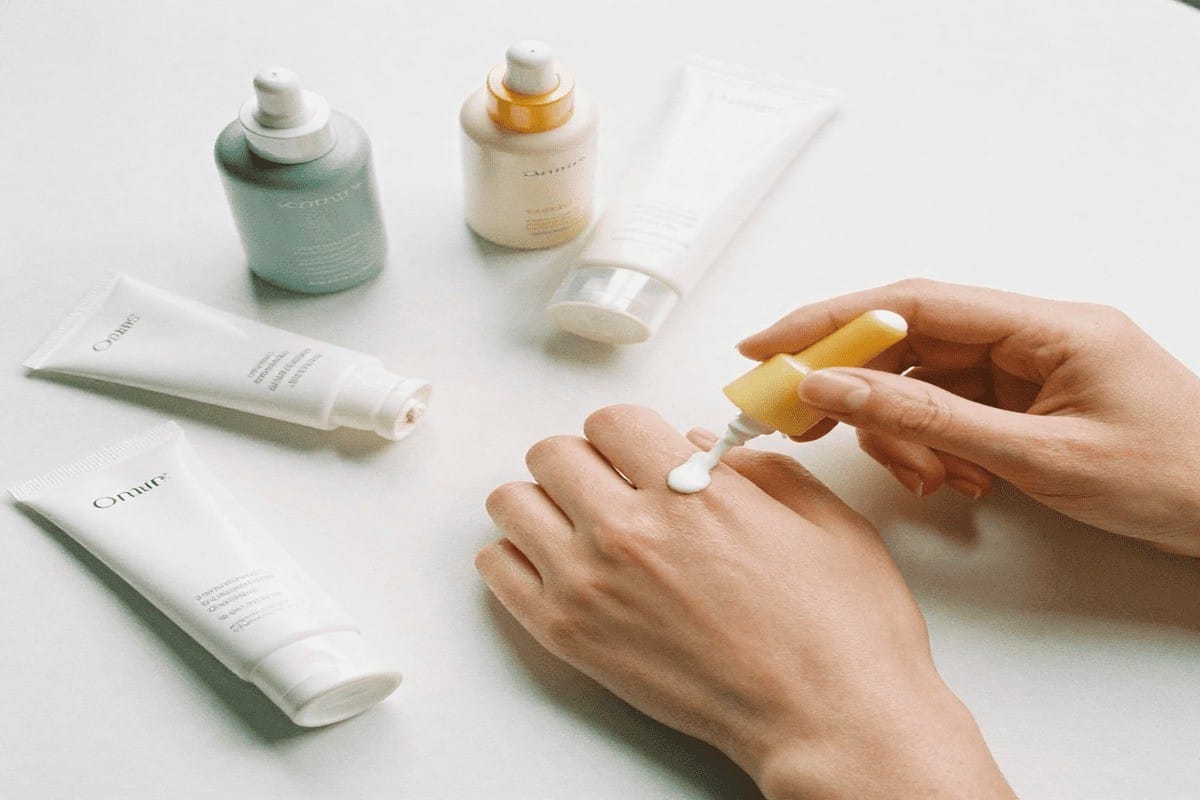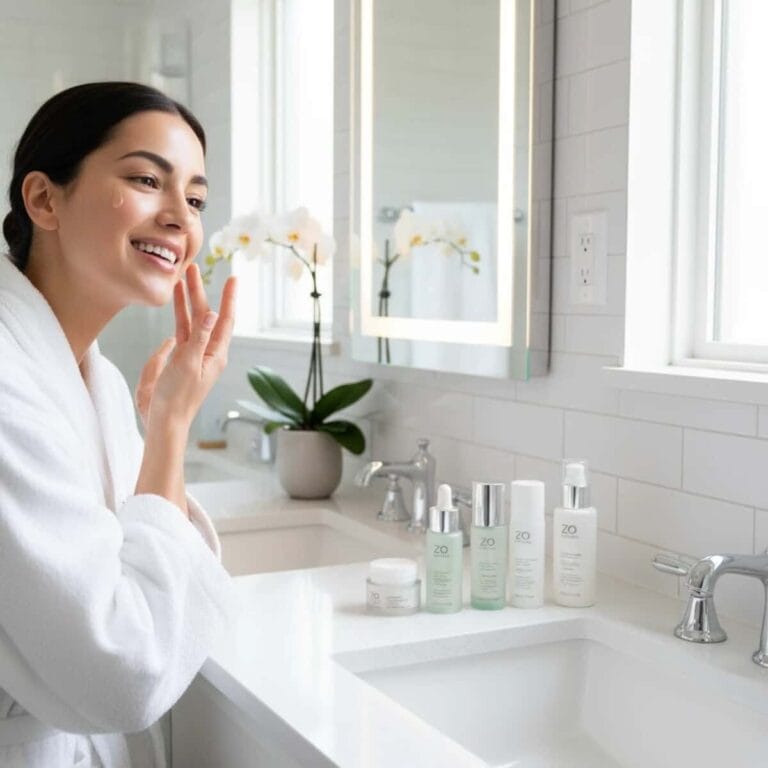Best Sunscreen for Oily Skin 2026 – Top Picks & Tips
2026 Expert Picks for the Best Sunscreen for Oily Skin (USA & UK)
Introduction
Finding the best sunscreen for oily skin 2026 can feel like a daily struggle. Many sunscreens are thick, greasy, or pore-clogging, making oily and acne-prone skin even more challenging to manage. Excess shine, breakouts, whiteheads, and makeup sliding off are common issues when the wrong sunscreen is used.
The good news? Dermatologist-approved sunscreens for oily skin 2026 are smarter, lighter, and more skin-friendly than ever. Today’s advanced formulas are oil-free, non-comedogenic, matte-finish, and fast-absorbing, designed specifically to protect oily skin without causing acne or excess shine.
In this complete 2026 guide to the best sunscreen for oily skin, you’ll discover:
The best sunscreen for oily skin in the United States and the United Kingdom in 2026
Key ingredients that oily skin really needs
Gel vs cream sunscreen for oily skin comparison
How to apply sunscreen for oily skin correctly
Expert dermatologist tips for shine-free sun protection
Table of Contents
Why Oily Skin Needs a Special Sunscreen
Key Features of Best Sunscreen for Oily Skin
Best Sunscreen for Oily Skin – Top Picks 2026
Gel vs Cream Sunscreen for Oily Skin
How to Apply Sunscreen on Oily Skin
Common Sunscreen Mistakes Oily Skin Should Avoid
Dermatologist Insight (2026 Update)
Does Sunscreen Help Control Oil?
FAQs – Best Sunscreen for Oily Skin (2026)
Final Verdict – Best Sunscreen for Oily Skin (2026)
Why Oily Skin Needs a Special Sunscreen (2026 Guide)
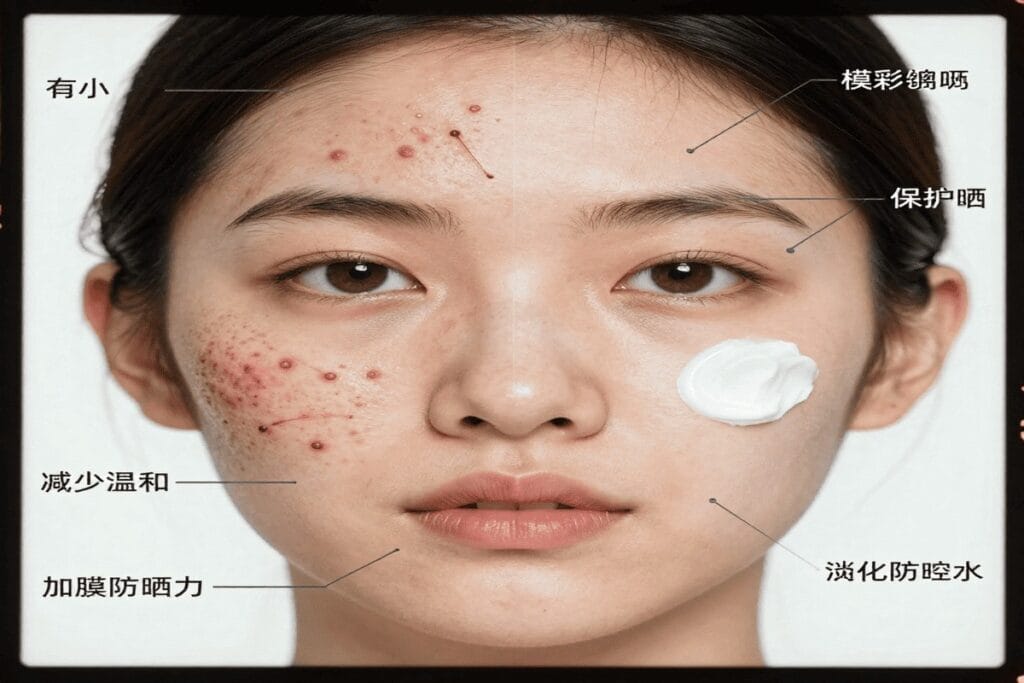
Oily skin requires a different approach to sun protection compared to normal or dry skin. Because oily skin naturally produces excess sebum, heavy or poorly formulated sunscreens can easily mix with oil, block pores, and trigger breakouts. Instead of protecting your skin, the wrong sunscreen can create more problems like acne, shine, and uneven texture.
In 2026, dermatologists recommend using the best sunscreen for oily skin—oil-free, lightweight, and non-comedogenic—so your skin stays balanced, protected, and shine-free.
Excess Sebum + Heavy Sunscreen = Clogged Pores
Sebum is the skin’s natural oil, but when it mixes with thick or creamy sunscreens, it can trap dirt, sweat, and bacteria inside pores. This often leads to:
Frequent acne breakouts
Painful pimples and bumps
Increased blackheads and whiteheads
Enlarged or congested pores
Using a sunscreen specifically formulated for oily skin 2026 helps absorb excess oil instead of trapping it, keeping pores clear and reducing the risk of acne flare-ups.
Greasy Sunscreens Worsen Shine and Texture
Many traditional sunscreens leave a sticky or greasy layer on the skin. For oily skin types, this leads to:
Excess shine throughout the day
Uncomfortable heavy feeling on the face
Skin looking dull, uneven, or patchy
Makeup sliding, creasing, or melting off
Modern best sunscreen for oily skin 2026 formulas are often gel or matte-finish, which control shine, feel lightweight, and keep skin fresh for hours.
Acne-Prone Skin Needs Non-Comedogenic Protection
Oily skin is often acne-prone, meaning pore-clogging ingredients can quickly trigger breakouts. Using a regular sunscreen may worsen acne by causing:
New acne flare-ups
Worsening of existing pimples
Post-acne marks and pigmentation
Dermatologist-recommended sunscreens for oily skin 2026 are non-comedogenic, meaning they don’t clog pores and help reduce acne risk while providing full UV protection.
Sun Exposure Can Increase Oil Production
Many people avoid sunscreen thinking it will make their skin oilier—but in reality, UV exposure damages the skin barrier, forcing your skin to produce more oil to protect itself.
The right sunscreen for oily skin 2026 can:
Strengthen the skin barrier
Reduce inflammation and redness
Help control oil over time
Prevent acne scars and pigmentation
Keep the skin looking matte, balanced, and healthy
Why Dermatologists Recommend Sunscreen for Oily Skin
Dermatologists strongly recommend choosing oil-free, lightweight, gel or fluid-based sunscreens with broad-spectrum SPF 30–50+.
These formulas:
Protect the skin without clogging pores
Reduce excess oil and shine throughout the day
Maintain a clear, balanced, and healthy complexion
Are suitable for acne-prone and sensitive skin
💡 Pro Tip 2026: Layer your best sunscreen for oily skin under a lightweight moisturizer for extra hydration without heaviness.
👉 Related internal read: Best Moisturizer for Oily Skin
Key Takeaway
Oily skin doesn’t need less sunscreen—it needs the right sunscreen for oily skin 2026. Choosing a formula specifically designed for oily skin helps:
Regulate oil production
Prevent breakouts and acne marks
Support the skin barrier
Provide full UV protection
Keep skin shine-free, fresh, and healthy
Key Features to Look for in the Best Sunscreen for Oily Skin (2026)
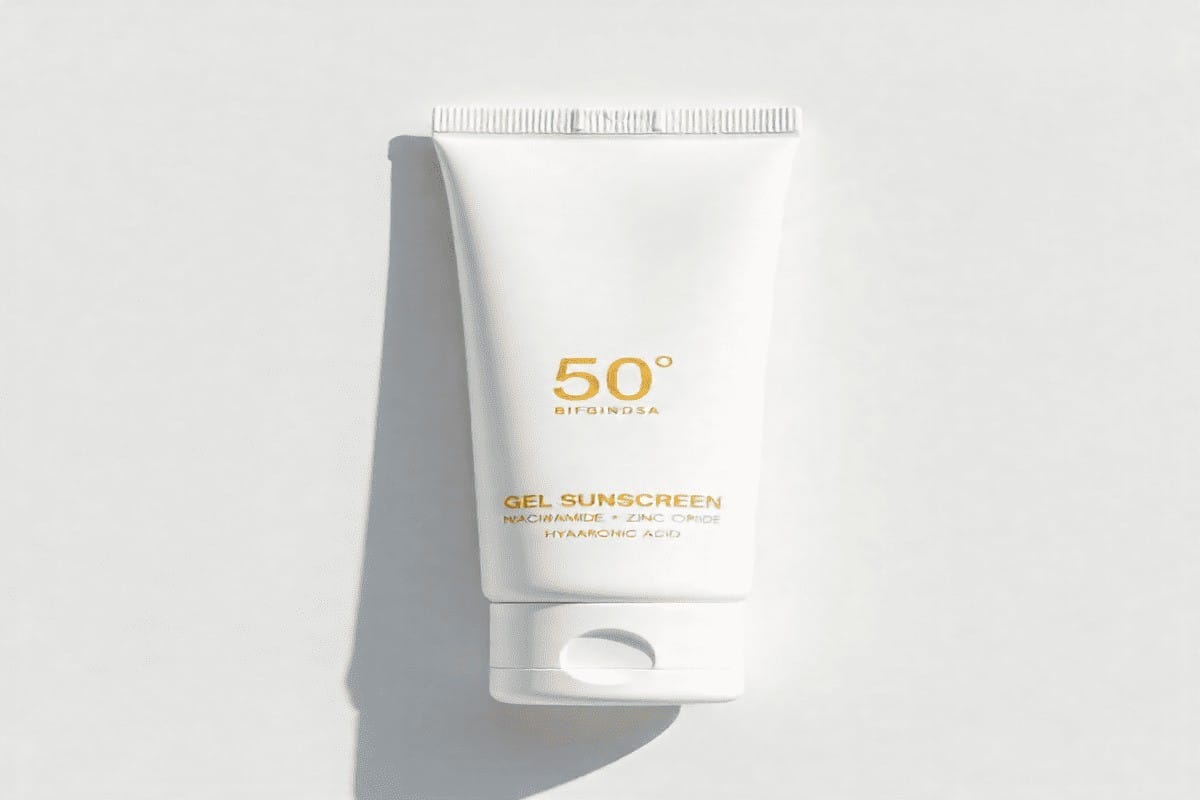
Choosing the right sunscreen for oily skin isn’t just about SPF—it’s about ingredients, texture, and how the formula interacts with your skin. In 2026, dermatologists recommend looking for these key features to ensure maximum protection without adding extra oil or clogging pores.
✔ Oil-Free & Non-Comedogenic
Sunscreens labeled oil-free or non-comedogenic are essential for oily or acne-prone skin.
Benefits:
- Prevents clogged pores
- Reduces breakouts, blackheads, and whiteheads
- Safe for sensitive areas like the forehead, nose, and chin
💡 Tip: Always double-check the ingredient list—avoid heavy oils or petrolatum-based formulas if you have oily skin.
✔ Matte or Gel Finish
A matte or gel-based sunscreen is designed to absorb excess oil and reduce shine throughout the day.
Why it matters:
- Keeps skin looking fresh and non-greasy
- Works well under makeup
- Lightweight feel prevents cakey or sticky sensation
💡 Pro Tip: Gel sunscreens often contain silica or oil-absorbing powders, which naturally control shine without drying out the skin.
✔ Broad-Spectrum SPF 30–50+
Sun protection isn’t just about SPF—it’s about broad-spectrum coverage.
Features to check:
- UVA protection: Prevents premature aging, fine lines, and dark spots
- UVB protection: Prevents sunburn and inflammation
- SPF 30–50+: Enough for daily wear, even in high-sun exposure areas like the USA southwest or UK summer
💡 2026 Update: High SPF doesn’t mean thick cream—modern formulations remain lightweight and matte.
✔ Lightweight & Fast-Absorbing
Oily skin needs a sunscreen that feels invisible and dries quickly.
Benefits:
- Prevents heavy, sticky feeling
- Layerable under moisturizer or makeup
- Suitable for daily wear without residue
💡 Pro Tip: Water-based gels and fluid sunscreens are ideal—they absorb in seconds and leave no white cast.
✔ Fragrance-Free (Optional)
Fragrance can irritate sensitive or acne-prone skin.
Benefits of fragrance-free sunscreen:
- Reduces redness and irritation
- Safe for blemish-prone areas
- Prevents allergic reactions
💡 Tip: If your skin reacts easily, always choose fragrance-free or hypoallergenic sunscreen.
✔ Oil-Controlling Ingredients
Look for sunscreens with active ingredients that regulate sebum production:
- Niacinamide: Reduces oiliness and calms inflammation
- Zinc Oxide: Absorbs oil and protects against UVA/UVB
- Silica: Controls shine naturally
- Salicylic Acid: Mildly exfoliates pores and prevents breakouts
💡 Extra Tip: Some sunscreens combine hydrating agents like hyaluronic acid with oil-control ingredients—perfect for oily skin that still needs moisture.
Key Takeaway
In 2026, the best sunscreen for oily skin is more than SPF. Look for formulas that are lightweight, matte, oil-free, and packed with skin-balancing ingredients. These features prevent acne, control shine, and protect your skin barrier, making your daily sunscreen a skincare hero, not a skin problem.
Best Sunscreen for Oily Skin – Top Picks 2026
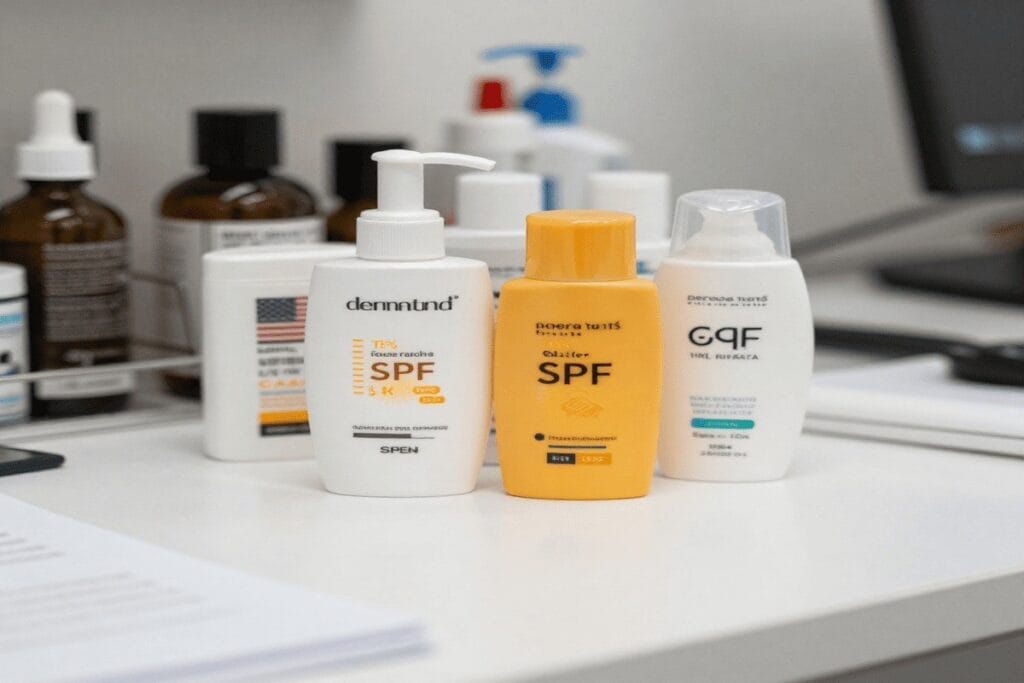
Choosing the right sunscreen for oily or acne-prone skin can be tricky, especially with so many options in the USA and UK. In 2026, dermatologists recommend sunscreens that are oil-free, lightweight, matte-finish, and packed with skin-calming ingredients. Here are the top picks based on expert reviews and real user feedback.
1️⃣ EltaMD UV Clear Broad-Spectrum SPF 46
Best for acne-prone oily skin (USA)
Why it’s special:
EltaMD UV Clear is a dermatologist-favorite in the USA, designed specifically for sensitive, acne-prone, and oily skin. Its lightweight gel texture absorbs quickly without leaving a white cast.
Key Features:
- Oil-free and ultra-lightweight formula
- Contains niacinamide to calm redness, reduce inflammation, and control oil
- Non-comedogenic – won’t clog pores
- Safe for sensitive skin and post-acne marks
Dermatologist Insight:
Experts recommend EltaMD for daily use because it prevents acne flare-ups while offering broad-spectrum UVA/UVB protection.
✔ Ideal for everyday wear and under makeup
✔ Helps reduce post-acne hyperpigmentation
2️⃣ La Roche-Posay Anthelios Clear Skin SPF 60
Best matte sunscreen for oily skin
Why it’s special:
This high-SPF sunscreen uses dry-touch technology to control oil and shine throughout the day, making it a favorite for hot and humid climates in the USA and UK.
Key Features:
- Advanced dry-touch formula absorbs excess oil instantly
- High SPF 60 for maximum sun protection
- Suitable for sensitive and acne-prone skin
- Non-greasy, lightweight feel
Dermatologist Insight:
La Roche-Posay Anthelios Clear Skin is ideal for oily skin because it prevents breakouts while providing long-lasting matte finish, even under makeup.
✔ Perfect for summer or tropical weather
✔ Popular choice among UK dermatologists
3️⃣ Neutrogena Hydro Boost Water Gel SPF 50
Best budget-friendly sunscreen for oily skin
Why it’s special:
Neutrogena Hydro Boost is a water-based gel formula that hydrates without leaving a greasy residue. It’s perfect for oily skin types who want affordable, daily protection.
Key Features:
- Fast-absorbing water-based gel formula
- Hydrates skin with hyaluronic acid without clogging pores
- Lightweight and suitable for under makeup
- Non-comedogenic and gentle on sensitive skin
Pro Tip:
Works well as a first-time sunscreen for oily skin because it balances hydration and oil control.
👉 Internal link: Best Sunscreen for Makeup
✔ Affordable, beginner-friendly, and lightweight
4️⃣ Eucerin Oil Control SPF 50+
Best sunscreen for oily skin in the UK
Why it’s special:
Eucerin Oil Control SPF 50+ is designed for oily and acne-prone skin, with a focus on sebum regulation and long-lasting matte finish.
Key Features:
- Sebum-regulating technology controls excess oil
- Non-greasy, lightweight, and non-sticky texture
- Long-lasting matte effect throughout the day
- Clinically tested for acne-prone skin
Dermatologist Insight:
UK dermatologists recommend Eucerin for daily sun protection, especially for oily skin that’s prone to shine and breakouts.
✔ Ideal for everyday use
✔ Keeps skin fresh even in humid or hot conditions
Key Takeaways for Choosing the Right Oily-Skin Sunscreen
- Gel-based or fluid sunscreens are usually better than creams for oily skin
- Always check for oil-control ingredients like niacinamide, zinc oxide, and silica
- SPF 30–50+ is sufficient for daily protection
- Reapply every 2–3 hours when outdoors
Gel vs Cream Sunscreen for Oily Skin – Which One Should You Choose?
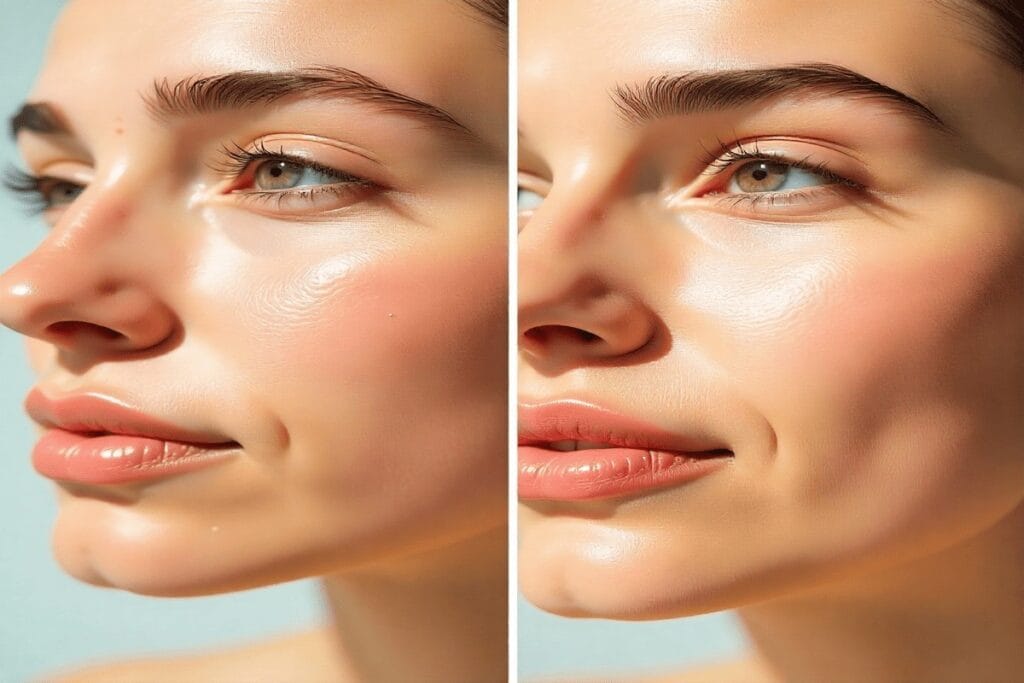
When it comes to oily or acne-prone skin, the texture of your sunscreen can be just as important as the SPF. Choosing the wrong texture can lead to excess shine, clogged pores, and breakouts, even if the sunscreen itself is oil-free.
In 2026, dermatologists strongly recommend lightweight gel or fluid sunscreens for oily skin, while cream-based sunscreens are better suited for dry or combination skin.
✔ Gel Sunscreens (Best Choice for Oily Skin)
Gel sunscreens are fast-absorbing, lightweight, and oil-free, making them ideal for oily or acne-prone skin.
Benefits of Gel Sunscreens:
- Absorb quickly: No sticky or heavy residue
- Breathable and lightweight, it feels cozy even in muggy conditions.
- Controls shine: Often contains oil-absorbing ingredients like silica or zinc oxide
- Non-comedogenic: Won’t clog pores or trigger acne
- Layerable under makeup: Perfect for everyday routines
Examples of Popular Gel Sunscreens (2026):
- EltaMD UV Clear Broad Spectrum SPF 46
- Neutrogena Hydro Boost Water Gel SPF 50
- La Roche-Posay Anthelios Clear Skin SPF 60
💡 Dermatologist Tip: Gel sunscreens work best for oily skin that’s prone to acne, especially in hot or humid climates like southern USA or UK summers.
✔ Cream Sunscreens (Better for Dry or Combination Skin)
Cream sunscreens are thicker and more emollient, making them suitable for dry or combination skin, but they may not be ideal for very oily skin.
Considerations for Cream Sunscreens:
- ✔ Provide extra hydration for dry areas
- ❌ Can feel heavy on oily skin
- ❌ May clog pores if not oil-free or non-comedogenic
- ❌ May leave a shiny or sticky finish
💡 Tip: If you have combination skin, you can use cream sunscreen on dry areas (cheeks, jawline) and gel sunscreen on oilier zones (forehead, nose, T-zone).
✅ Verdict
For oily or acne-prone skin:
- Gel or fluid sunscreens are always the better option
- They control shine, absorb quickly, and prevent breakouts
- Cream sunscreens should only be used if your skin is dry in certain areas
Using the right texture sunscreen ensures your oily skin stays protected, matte, and comfortable all day without clogging pores or triggering breakouts.
How to Apply Sunscreen on Oily Skin – Step-by-Step Guide (2026)
Applying sunscreen correctly is just as important as choosing the right formula, especially for oily or acne-prone skin. Even the best oil-free, matte sunscreen won’t work if it’s applied incorrectly.
Follow this dermatologist-approved routine to ensure maximum UV protection while keeping your skin matte, fresh, and breakout-free.
Step 1: Cleanse Your Face
- Use a gentle, oil-control cleanser to remove dirt, sweat, and excess oil.
- Avoid harsh scrubs or foaming cleansers that can strip natural oils, which may trigger more oil production.
💡 Pro Tip: Clean skin helps sunscreen absorb better and prevents clogged pores.
Step 2: Apply a Lightweight Moisturizer (Optional)
- Even oily skin needs hydration. Use a lightweight, oil-free, non-comedogenic moisturizer.
- This step creates a smooth base for sunscreen and helps it spread evenly.
💡 Tip: Skip moisturizer if your sunscreen is hydrating or gel-based, as it may already provide sufficient moisture.
Step 3: Apply the Right Amount of Sunscreen
- Use two finger lengths for your face and neck to ensure full coverage.
- Don’t skimp—the amount directly affects SPF protection.
💡 Pro Tip: Divide your face into zones (forehead, cheeks, nose, chin) and apply evenly to prevent missed areas.
Step 4: Pat, Don’t Rub
- Gently pat sunscreen into the skin rather than rubbing aggressively.
- This helps the product absorb faster and reduces irritation or excessive shine.
💡 Pro Tip: Patting prevents moving makeup later and keeps sunscreen in place for longer.
Step 5: Wait Before Makeup
- Allow sunscreen to settle for 2–3 minutes before applying makeup.
- This ensures it forms a protective barrier and prevents mixing with foundation.
👉 Internal link: How to Apply Makeup Step by Step for Beginners
Step 6: Reapply Every 2–3 Hours
- For outdoor activities or long sun exposure, reapply sunscreen every 2–3 hours.
- Even oil-control formulas lose effectiveness over time due to sweat, oil, and environmental factors.
💡 Pro Tip: Carry a travel-size gel sunscreen or sunscreen powder for easy reapplication on oily skin.
Dermatologist Insight (2026 Update)
- Daily sunscreen is essential, even indoors, as UVA rays penetrate windows.
- Correct application improves oil control, prevents breakouts, and maximizes UV protection.
- For oily skin, gel or fluid sunscreens are easier to reapply without adding extra shine.
Key Takeaways for Oily Skin Application
- Always start with clean skin.
- Use lightweight moisturizer only if needed.
- Apply enough sunscreen (2 finger lengths).
- Pat gently instead of rubbing.
- Wait 2–3 minutes before makeup.
- Reapply regularly outdoors or after sweating.
✅ Following this step-by-step routine ensures your oily skin stays protected, matte, and healthy all day without clogging pores or causing shine.
Common Sunscreen Mistakes Oily Skin Should Avoid (2026)
Even the best sunscreen won’t protect your skin if it’s applied incorrectly or used in the wrong way. Oily skin is particularly prone to shine, clogged pores, and breakouts, so avoiding these common mistakes is essential for healthy, balanced skin.
❌ Mistake 1: Skipping Sunscreen to Avoid Shine
Because they think it would make their skin greasier, many people with oily skin avoid using sunscreen.
Why it’s a problem:
- Sun exposure increases oil production
- Can worsen acne and trigger pigmentation or dark spots
- Leads to premature aging
💡 Dermatologist tip (2026): Use oil-free, matte-finish sunscreen. It protects skin without adding shine.
❌ Mistake 2: Using Body Sunscreen on the Face
Body sunscreens are often thicker, greasier, or fragranced, which can clog pores and irritate sensitive facial skin.
Why it’s a problem:
- May cause acne breakouts
- Can leave white cast or sticky residue
- Not formulated for delicate facial skin
💡 Tip: Always use sunscreen specifically formulated for the face, especially for oily or acne-prone skin.
❌ Mistake 3: Applying Too Little Product
Applying a tiny amount reduces the SPF protection and leaves skin vulnerable to UV damage.
Why it’s a problem:
- Less protection than labeled SPF
- Uneven coverage on areas like nose, forehead, and ears
💡 Dermatologist tip: Use two finger lengths for face and neck. For full body, apply 1 teaspoon per arm and leg.
❌ Mistake 4: Not Reapplying During the Day
Even oil-control sunscreens lose effectiveness after 2–3 hours, especially outdoors or when sweating.
Why it’s a problem:
- Sun protection diminishes over time
- Can lead to sunburn, pigmentation, or acne marks
💡 Tip: Carry a travel-size gel sunscreen or sunscreen powder for easy reapplication.
❌ Mistake 5: Layering Heavy Skincare Under Sunscreen
Thick creams, oils, or serums under sunscreen can mix with natural sebum and block pores.
Why it’s a problem:
- Increases shine and greasiness
- May reduce sunscreen absorption
- Can trigger breakouts
💡 Pro Tip: For oily skin, layer lightweight moisturizer or skip moisturizer if your sunscreen is already hydrating.
✅ Key Takeaways
- Sunscreen is non-negotiable, even for oily skin
- Always choose oil-free, lightweight, and matte-finish formulas
- Apply enough sunscreen, pat gently, and reapply regularly
- Avoid heavy creams or body sunscreens on the face
Following these tips prevents breakouts, excess shine, and sun damage, keeping your oily skin healthy and balanced.
Dermatologist Insight – Why Sunscreen is Essential for Oily Skin (2026 Update)
Dermatologists worldwide emphasize that daily sunscreen use is non-negotiable, even for oily or acne-prone skin. Sun protection not only prevents UV damage but also helps maintain a healthy, balanced complexion.
In 2026, modern formulations for oily skin are lightweight, oil-free, and designed to control shine, making it easier than ever to protect skin without causing breakouts.
Why Oily Skin Needs Daily Sunscreen
Daily sunscreen use helps prevent and manage common skin concerns, especially for oily skin types:
- Acne Marks: UV exposure can darken post-acne marks, making them more visible.
- Hyperpigmentation: Sunscreen guards against UV damage-induced dark patches and uneven skin tone.
- Premature Aging: UVA rays penetrate deep into the skin, causing fine lines and early wrinkles.
- Sun-Induced Inflammation: Reduces redness, swelling, and irritation that can trigger more oil production.
💡 Pro Tip (2026): Choose oil-absorbing ingredients like niacinamide, zinc oxide, or silica to control shine while protecting skin.
Lightweight Gel & Fluid Sunscreens – The Gold Standard
Dermatologists now recommend gel or fluid sunscreens as the top choice for oily or acne-prone skin:
- Fast Absorbing: Doesn’t leave a sticky or heavy residue.
- Matte Finish: Controls excess oil and shine.
- Non-Comedogenic: Won’t clog pores or trigger breakouts.
- Layerable: Perfect under moisturizer or makeup.
Examples of dermatologist-recommended 2026 gel sunscreens:
- EltaMD UV Clear Broad Spectrum SPF 46 (USA)
- La Roche-Posay Anthelios Clear Skin SPF 60 (USA & UK)
- Neutrogena Hydro Boost Water Gel SPF 50 (Budget-Friendly, USA)
- Eucerin Oil Control SPF 50+ (UK Favorite)
Expert Tip – Consistency is Key
- Every morning, even on overcast days or indoors, put on sunscreen.
- Reapply every 2–3 hours when outdoors, sweating, or after water exposure.
- For oily skin, lightweight gel formulas make reapplication easy without extra shine.
Key Takeaway
In 2026, dermatologists agree: daily sunscreen use for oily skin is essential. The right formula not only protects from UV damage and premature aging, but also reduces oiliness, prevents acne marks, and keeps skin balanced.
👉 External reference: Sunscreen for Oily & Acne-Prone Skin
Does Sunscreen Help Control Oil? (2026 Update)
Many people assume that sunscreen will make oily skin greasier, but the truth in 2026 is the opposite: modern sunscreens can actually help control excess oil. Dermatologists now recommend formulas specifically designed for oil-prone and acne-prone skin, which not only protect from UV damage but also help maintain a matte, balanced complexion.
How Sunscreen Helps Control Oil
Modern sunscreens contain special ingredients that actively reduce shine and regulate sebum production:
- Oil-Absorbing Powders: Ingredients like silica, kaolin, or talc absorb excess surface oil and keep skin matte.
- Sebum-Regulating Actives: Compounds like niacinamide or zinc oxide balance oil production without drying the skin.
- Skin-Balancing Ingredients: Lightweight hydration with hyaluronic acid or glycerin ensures skin remains hydrated while preventing overproduction of sebum.
💡 Dermatologist Tip (2026): Gel or fluid sunscreens with these ingredients are ideal for oily skin, as they prevent shine and breakouts while offering broad-spectrum UVA/UVB protection.
Additional Benefits for Oily Skin
Using the right sunscreen consistently can also:
- Reduce post-acne marks and hyperpigmentation
- Prevent sun-induced inflammation that triggers more oil production
- Help makeup stay in place throughout the day
- Support a healthy skin barrier, reducing oil overcompensation
Expert Recommendation
Dermatologists globally emphasize daily sunscreen use for oily skin, even indoors or on cloudy days. Correct formulation and consistent application help regulate oil while protecting the skin from UV damage, acne scars, and premature aging.
👉 External reference: Sunscreen for Oily & Acne-Prone Skin
Key Takeaway
With modern oil-control sunscreens:
- Oily skin can stay matte, fresh, and protected all day
- Breakouts and shine are significantly reduced
- Daily sun protection no longer feels heavy or greasy
✅ In 2026, sunscreen is not just protection—it’s a skincare tool for oily and acne-prone skin.
FAQs – Best Sunscreen for Oily Skin (2026)
Here are the most common questions about sunscreen for oily and acne-prone skin, answered with dermatologist-approved advice and 2026 updates.
❓ What SPF is best for oily skin?
- Dermatologists recommend SPF 30–50+ for daily protection.
- SPF 30 is sufficient for indoor use or short outdoor exposure, while SPF 50+ is ideal for long sun exposure or summer conditions.
- Always choose broad-spectrum sunscreen to protect against both UVA (aging) and UVB (burning) rays.
💡 Pro Tip: Even if you have oily skin, don’t compromise SPF for texture—modern gel sunscreens offer high SPF without shine.
❓ Can oily skin use sunscreen every day?
- Yes! Daily sunscreen is essential, even if you spend most of your day indoors.
- UVA rays penetrate windows, causing premature aging, hyperpigmentation, and inflammation.
- Using sunscreen daily also reduces excess oil production triggered by sun damage.
👉 Internal link: How to Apply Sunscreen on Oily Skin
❓ Is gel sunscreen better for oily skin?
- Absolutely! Gel or water-based formulas are lightweight, fast-absorbing, and matte-finish, making them ideal for oily skin.
- Creams can work for combination or dry areas, but gel remains the gold standard for very oily and acne-prone skin.
💡 2026 Update: Look for gels with oil-controlling ingredients like niacinamide, silica, or zinc oxide.
❓ Can sunscreen cause acne on oily skin?
- Only if the sunscreen is not oil-free or non-comedogenic.
- Heavy creams or body sunscreens applied to the face may clog pores and trigger breakouts.
- Choosing a gel, oil-free sunscreen ensures protection without causing acne.
❓ Should oily skin moisturize before sunscreen?
- Yes, but always use a lightweight, oil-free gel moisturizer.
- This step helps create a smooth base, ensures even sunscreen application, and prevents patchiness.
- Skip moisturizer if your sunscreen is already hydrating, as many 2026 gel formulas combine hydration + oil control.
💡 Pro Tip: Layering heavy creams under sunscreen can increase shine and clog pores, so stick to lightweight options.
✅ Key Takeaways from FAQs
- SPF 30–50+ is ideal; broad-spectrum coverage is a must
- Daily sunscreen use is essential, indoors or outdoors
- Gel or water-based formulas are the best choice for oily skin
- Non-comedogenic, oil-free products prevent acne
- Lightweight moisturizer can be used before sunscreen, if needed
Final Verdict – Best Sunscreen for Oily Skin (2026)
Choosing the right sunscreen for oily skin in 2026 can completely transform your skincare routine. The perfect formula not only protects your skin from UV damage, but also prevents excess shine, breakouts, and clogged pores, making it an essential step for daily skincare.
Key Points to Remember
- Choose Oil-Free & Non-Comedogenic Formulas
- Prevents clogged pores, blackheads, and acne
- Essential for sensitive and acne-prone skin
- Opt for Lightweight Gel or Fluid Sunscreens
- Fast-absorbing, breathable, and matte finish
- Layerable under makeup or moisturizer without heaviness
- Look for Broad-Spectrum SPF 30–50+
- Protects against UVA (aging) and UVB (burning) rays
- High SPF prevents premature aging, hyperpigmentation, and sun-induced inflammation
- Include Oil-Control Ingredients
- Niacinamide, zinc oxide, silica, and salicylic acid help regulate sebum and maintain a matte complexion
- Apply Correctly & Reapply
- Pat sunscreen gently onto clean skin
- Wait 2–3 minutes before makeup
- Reapply every 2–3 hours, especially outdoors
Why Daily Sunscreen is a Game Changer
- Reduces post-acne marks and hyperpigmentation
- Controls oiliness and shine throughout the day
- Protects the skin barrier from environmental stressors
- Prevents premature aging, fine lines, and sunspots
💡 Pro Tip: Even if your skin is very oily, gel-based sunscreens with sebum-regulating ingredients allow you to stay protected without feeling greasy.
For USA & UK Readers
Whether you live in the USA with its hot summers or the UK with variable sun exposure, using the right sunscreen daily ensures:
- Fewer breakouts
- Matte, balanced skin
- Healthy, radiant complexion over time
Final Thought
✨ Healthy, balanced skin starts with the right sun protection. Choosing a lightweight, oil-free, matte sunscreen for oily skin in 2026 is not just skincare—it’s a daily habit that prevents acne, sun damage, and premature aging, keeping your skin clear, protected, and radiant all year round.
Author: Shazada

